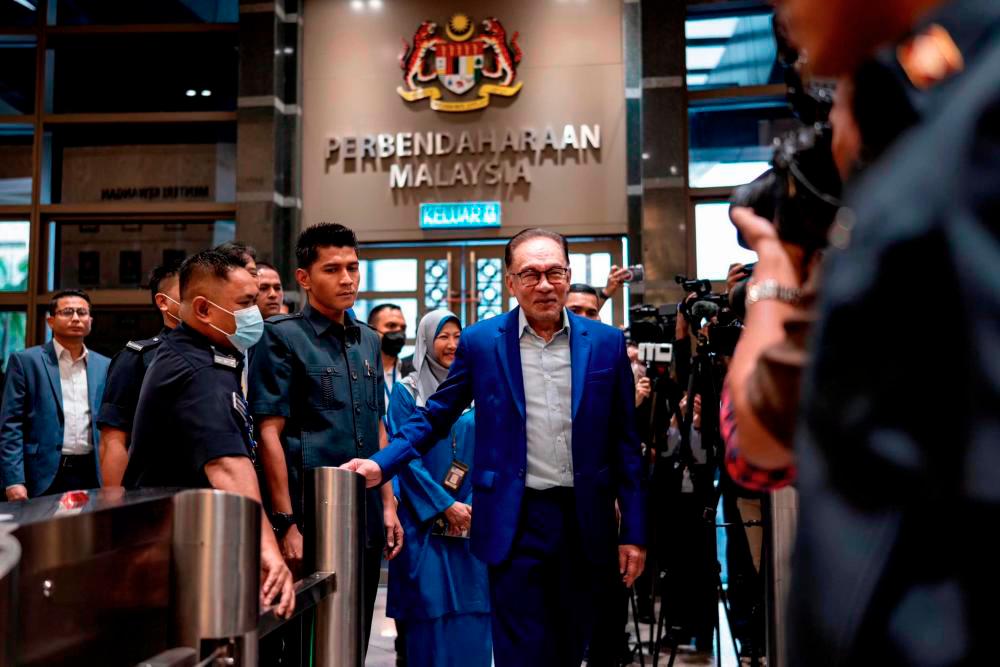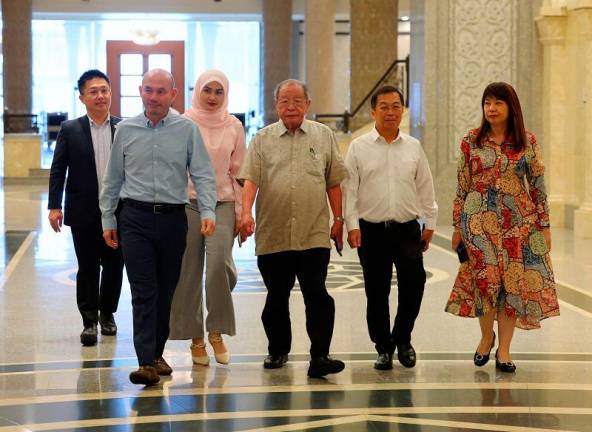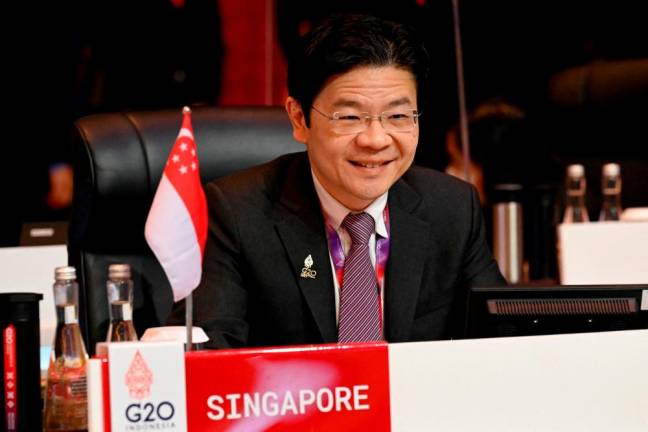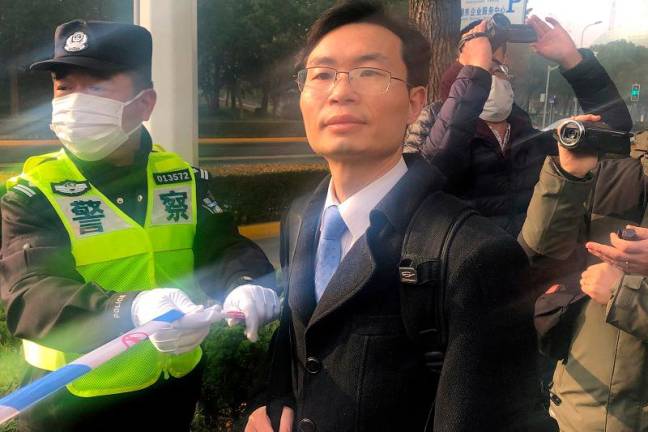THE prime minister’s decision to hold the Finance Ministry portfolio was among the key highlights in the recent Cabinet announcement.
Datuk Seri Anwar Ibrahim decided to hold the portfolio, with the intention of resuscitating the economy and restoring confidence among the people, business sectors and foreign investors.
In fairness to Anwar, the Cabinet appointment is his prerogative as enshrined in Articles 43(1) and 43(2)(a) and (b) of the Federal Constitution.
Anwar helming the portfolio can also be justified, considering his vast experience as finance minister in 1991-1998, during which Malaysia’s economic growth was among the highest in the East Asian region, when our country was dubbed the “Asian Tiger”.
Furthermore, Anwar was named finance minister of the year in 1996 by Asiamoney, while Euromoney ranked him among the top four best finance ministers in the world.
The other prime minister who had held the finance portfolio for a considerable period was the fifth prime minister, Tun Abdullah Ahmad Badawi (five years), and the sixth prime minister, Datuk Seri Najib Abdul Razak (10 years). A second finance minister was appointed at the time to help Najib with the portfolio.
In my opinion, centralisation of power in the hands of the prime minister is completely against the idealism of Pakatan Harapan.
As a matter of fact, one of its manifesto promises over the past few elections was to separate the functions.
In 2015, the then Pandan member of Parliament, Rafizi Ramli, who is the current economy minister, had filed a Private Member’s Bill to separate the prime minister’s function from the finance minister. This was due to Najib’s involvement in the 1MDB scandal, following a conflict of interest when he was helming the Finance Ministry while he was also chairman of the 1MDB Advisory Board.
Nevertheless, the filing of the Bill was rejected by then Speaker Tan Sri Datuk Seri Pandikar Amin Mulia on the grounds that it did not comply with Standing Order 49(2) of the Legislative, which was not in accordance with the Ministerial Functions Act 1969 (Act 2).
Rafizi stated recently at a press conference that the prime minister’s finance portfolio is only for a temporary period until economic recovery is attained.
He also stressed that the centralisation of power in the hands of the prime minister is not a long term policy of the unity government.
Thus, Anwar should accept responsibility for his decision, which drew sharp criticisms, not only from the opposition bloc, but also from a number of non-government bodies like Ideas.
In order to defuse any “attack”, Anwar should set a specific “expiry date” – a date when he should relinquish the post after economic recovery is attained and the country’s growth is back on track.
Assoc Prof Dr Mahyudin Ahmad
Assoc Fellow Accounting Research Institute
Universiti Teknologi Mara and Economics Lecturer, UiTM, Perlis











